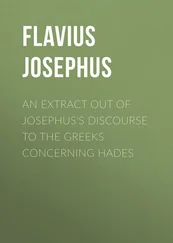Sarah Caudwell - The Shortest Way to Hades
Здесь есть возможность читать онлайн «Sarah Caudwell - The Shortest Way to Hades» весь текст электронной книги совершенно бесплатно (целиком полную версию без сокращений). В некоторых случаях можно слушать аудио, скачать через торрент в формате fb2 и присутствует краткое содержание. Жанр: Иронический детектив, на английском языке. Описание произведения, (предисловие) а так же отзывы посетителей доступны на портале библиотеки ЛибКат.
- Название:The Shortest Way to Hades
- Автор:
- Жанр:
- Год:неизвестен
- ISBN:нет данных
- Рейтинг книги:5 / 5. Голосов: 1
-
Избранное:Добавить в избранное
- Отзывы:
-
Ваша оценка:
- 100
- 1
- 2
- 3
- 4
- 5
The Shortest Way to Hades: краткое содержание, описание и аннотация
Предлагаем к чтению аннотацию, описание, краткое содержание или предисловие (зависит от того, что написал сам автор книги «The Shortest Way to Hades»). Если вы не нашли необходимую информацию о книге — напишите в комментариях, мы постараемся отыскать её.
The Shortest Way to Hades — читать онлайн бесплатно полную книгу (весь текст) целиком
Ниже представлен текст книги, разбитый по страницам. Система сохранения места последней прочитанной страницы, позволяет с удобством читать онлайн бесплатно книгу «The Shortest Way to Hades», без необходимости каждый раз заново искать на чём Вы остановились. Поставьте закладку, и сможете в любой момент перейти на страницу, на которой закончили чтение.
Интервал:
Закладка:
“So it is,” he said. “But with you and me it would be different.”
I could not help thinking this a rather unprincipled attitude in a man well regarded in feminist circles for the soundness of his views on the question. Moreover, “With you and me it would be different” is tempting to believe; but we do have several friends, don’t we, who yielded to similar persuasion and found afterwards that it wasn’t quite different enough? Still, a measure of tact is needed when rejecting such a suggestion: I took care to explain that my reluctance was due to the idyllic perfection of our existing arrangements, which made me feel that any change must inevitably be for the worse. I wondered if it might not be sensible, in the hope of avoiding further argument, to be a little hurt that Sebastian was not of the same view.
Before I had reached a decision on this point, my attention was again drawn by the cricket match — to be specific, by the discovery that the cricket ball was now moving in my direction at a speed which gave me the choice of (i) catching it or (ii) allowing it to strike me a sharp blow in the midriff. I chose the first alternative. “Ah,” I thought, as one of the players, rather slender and elegant of figure, strolled towards me to retrieve it, “that looks like the sort of thing that Julia might fancy.” I saw, as he drew closer, that I had been right in my judgment: it was Leonidas Demetriou.
“Well caught,” said Leonidas. “Oh — it’s Miss Jardine, isn’t it? Miss Jardine of Lincoln’s Inn?”
I introduced him to Sebastian, to the great satisfaction of both: Leonidas clearly had in mind the advice of his Classics master that a boy hoping to go up to Oxford in the next academic year should miss no chance to make a favorable impression on a senior member of the University; while Sebastian, on learning that this was the son of the distinguished poet Constantine Demetriou, was as pleased and interested as if I had given him a personal introduction to Homer’s great-grandmother.
Apparently content to abandon his part in the match, Leonidas sat down at our table. At some stage he went away to make a telephone call — as it turned out, to his parents: he represented them, on his return, as yearning for our company at dinner and scarcely to be consoled should we refuse. Well, there was no question of that: Sebastian had been daydreaming for ten minutes of meeting personally the man he so much admired. A little before dusk we found ourselves at the Villa Miranda, in a garden looking out across the sea to Albania.
Since you have not enjoyed the remarkable privilege of meeting Constantine Demetriou, I must try to make up for your loss by giving you a full account of the great poet’s manner and appearance. He is tall, rather thin for his height, but fairly muscular, and with features which put one in mind (it is not for me to suggest he cultivates the impression) of one of the older gods of Olympus, as depicted in painting and sculpture — Poseidon, say, or even Zeus himself: dark eyes set deep under a high sloping forehead; an aquiline nose; and a spade-shaped black beard, slightly curly and streaked with gray. He has also the quality, which one sees in successful advocates, of holding the attention of those about him even when he has nothing in particular to say.
The Zeus-like effect was heightened, when we first saw him, by the fact of his being surrounded by the younger members of the Remington-Fiske family — all of whom, as you know, are very tall and splendid to look at, admirably suited to supporting roles in a dramatic tableau of family life on Mount Olympus. Lucinda, with her copper-colored hair and abundance of curves, would make an excellent stand-in for the goddess Aphrodite; and her brother Lucian is very good-looking, and has literary ambitions — I think he can be cast as Apollo. As for Camilla — well, I’m not sure that the qualities of a romantic heroine include the intellectual attributes of Pallas Athene; but she is certainly athletic enough to do for Artemis, and said to be suitably virginal. Leonidas would be Hermes, I suppose; or perhaps Ganymede — he was very diligent about keeping everyone’s glass filled. None of them seemed to have suffered any serious harm from their misadventures on Thursday night: Lucian had his arm in a sling, and I noticed later that Camilla still has some bruises; but apart from that they all seem to have recovered remarkably well.
Dolly, of course, does not fit in at all with the Mount Olympus picture. You would have to imagine that Zeus and Hera had been divorced — from what Homer says of their domestic life this seems not at all unlikely — and that Zeus had taken up with some less formidable goddess, with untidy hair and paint under her fingernails. It was Dolly, when we arrived at the Villa Miranda, who first came running across the garden to meet us; but her husband followed and overtook her, seized Sebastian by the hand, embraced him, and asked if he was indeed Sebastian Verity, the translator of Theocritus.
Oh joy — the great poet had read Sebastian’s translation of the Idylls. Oh honor undreamt of — not merely read, but admired.
I do not in fact see why Sebastian should have been so surprised. His translation of the Idylls may not have had a great commercial success; but it was favorably reviewed by all the critics whose opinion is worth having, and The Times called it essential reading for anyone with pretensions to a liberal education: our host might have been expected to have read and admired it.
Dolly went to great lengths to make sure I did not think myself the less honored guest, introducing me without a blush to her husband as one of the most brilliant advocates of my generation. I ventured to remind her that she had never heard me open my mouth in court — when we varied the trusts of her father’s will, you remember, I was led by Basil Ptarmigan; but she was not at all disconcerted.
“I know,” she said. “I thought it was a shame you weren’t allowed to say anything. I’m sure you’d have done it just as nicely as Mr. Ptarmigan, and it wouldn’t have been so expensive, would it?” Do by all means report this to Basil when you next see him. “But I do know you’re brilliant, because Ronnie Tancred told me so.”
I am bound to admit that I was rather pleased. Without believing that Tancred would have said anything so exaggerated, I thought I could infer that he had said something pleasant about me, and it is always gratifying to be well spoken of by one’s instructing solicitors.
I had hoped during dinner to hear about the events of Thursday night from the point of view of those on the sailing-boat. Dolly, however, could not bear to hear the subject spoken of: she had spent all Friday thinking that Camilla was drowned; she had afterwards learned that they could all have been drowned; it had been, she said, the most horrible day of her life, and she never wanted to think about it again.
Her husband and Sebastian, as was to be expected, fell into a discussion of poetry and politics — subjects which neither of them seemed readily able to distinguish, so that one might have gathered from listening to them that the main objection to the Colonels was their unsoundness on matters of poetic diction.
I began to be embarrassed at the thought that everyone was talking English entirely for my benefit, since all the others at the table understood Greek: even Camilla and the twins seem to speak it quite fluently. After dinner, when we adjourned to the garden for coffee, I thought it tactful to attach myself to the younger members of the family (who were not passionately interested in questions of poetic diction), leaving Sebastian and our host to continue their conversation in Greek. Since Dolly remained with them, I now felt free to ask again about what had happened on Thursday night. I said that I had heard about it in Parga, but did not mention the fishermen at Mourtos.
Читать дальшеИнтервал:
Закладка:
Похожие книги на «The Shortest Way to Hades»
Представляем Вашему вниманию похожие книги на «The Shortest Way to Hades» списком для выбора. Мы отобрали схожую по названию и смыслу литературу в надежде предоставить читателям больше вариантов отыскать новые, интересные, ещё непрочитанные произведения.
Обсуждение, отзывы о книге «The Shortest Way to Hades» и просто собственные мнения читателей. Оставьте ваши комментарии, напишите, что Вы думаете о произведении, его смысле или главных героях. Укажите что конкретно понравилось, а что нет, и почему Вы так считаете.












